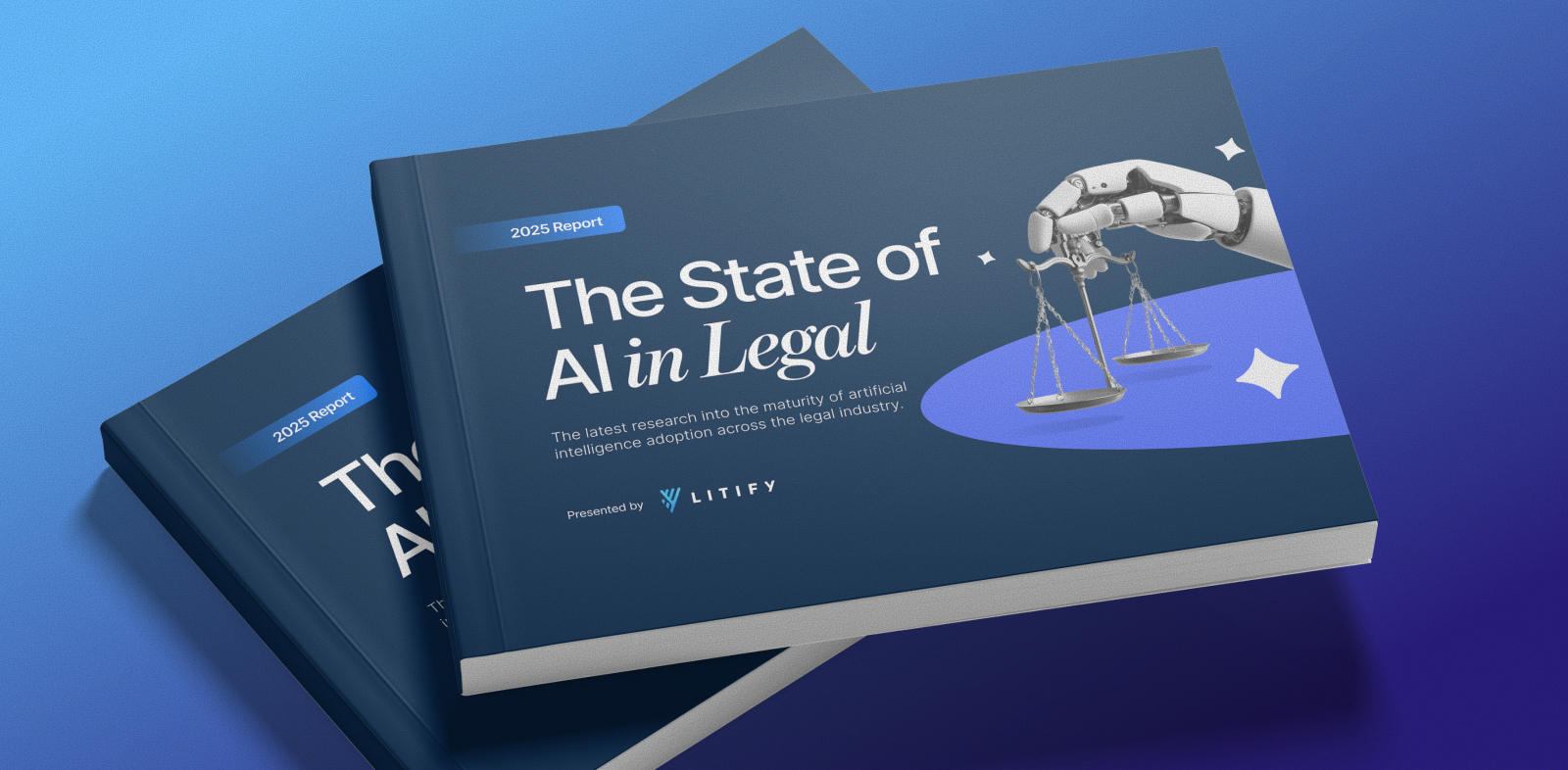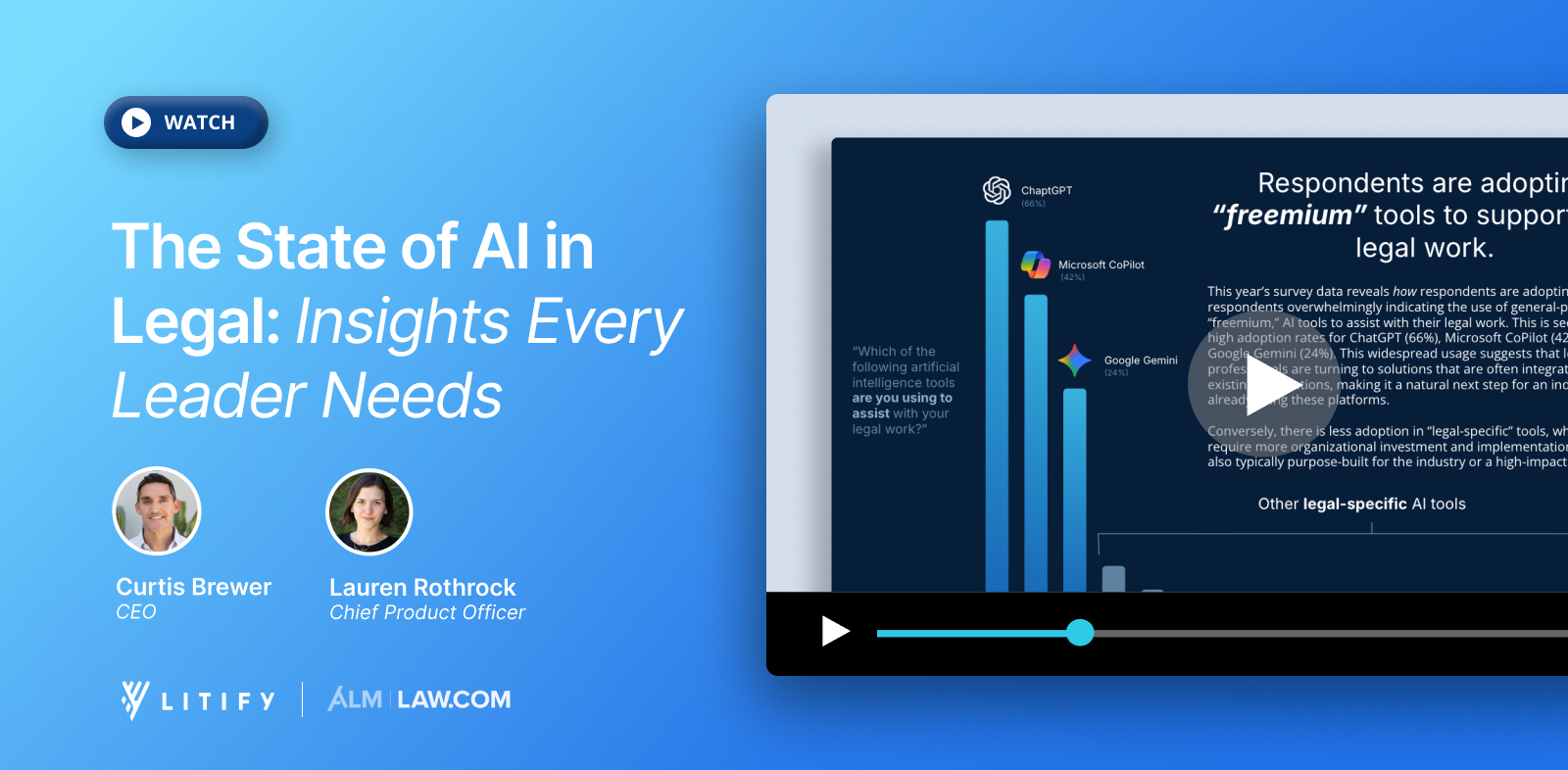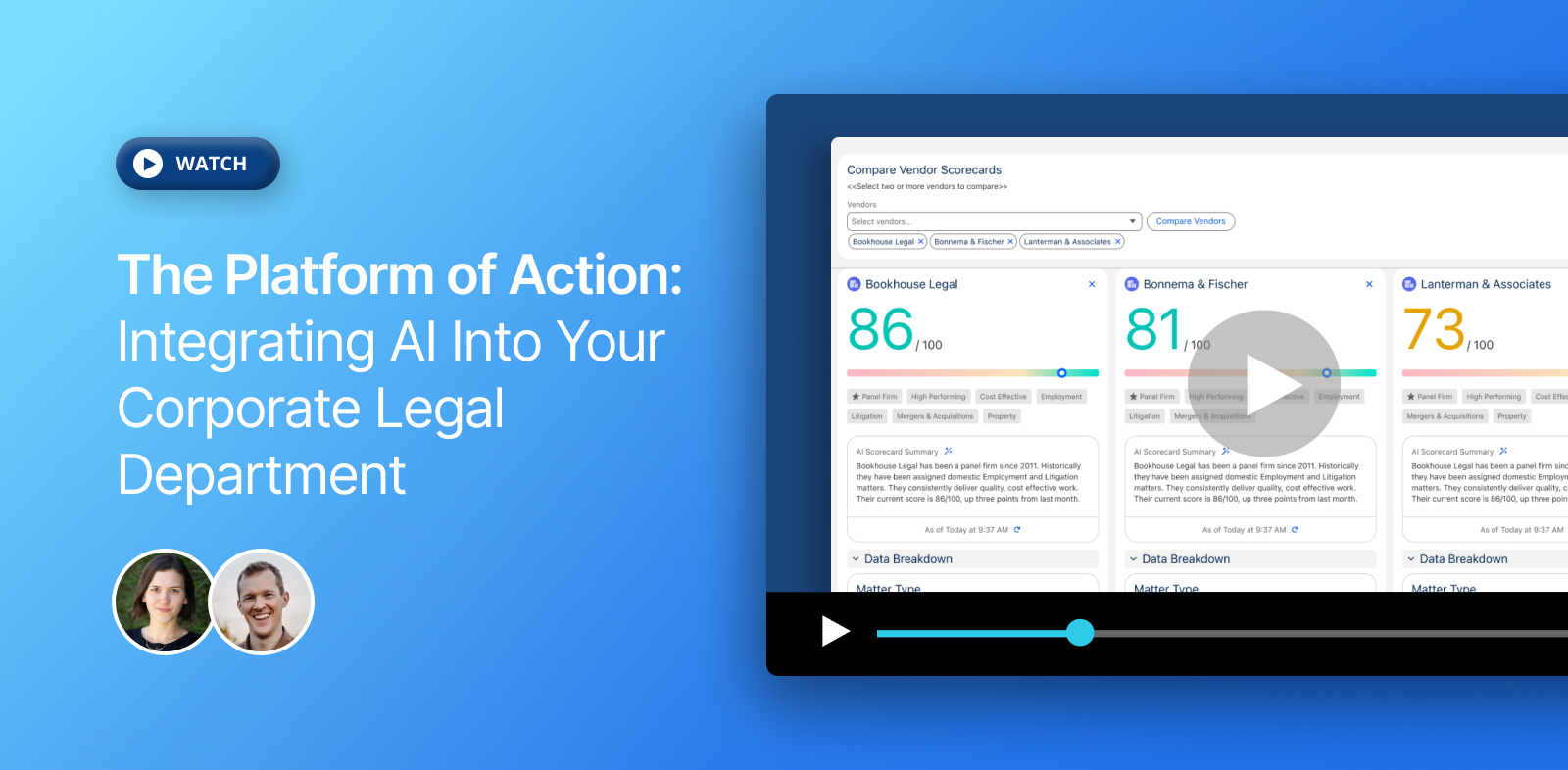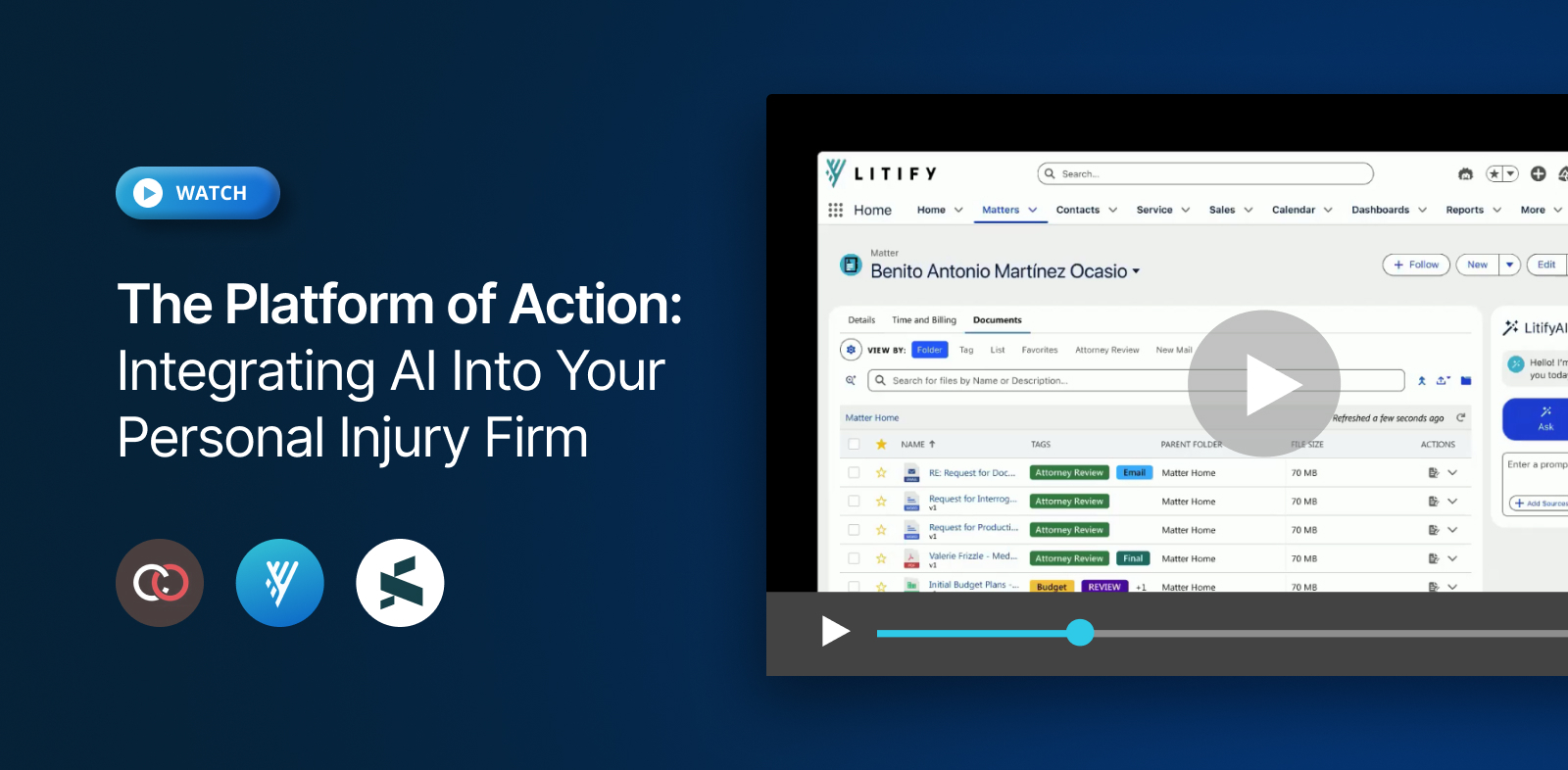Leading Resources for Legal Professionals

The latest trends, technology, and tactics driving change in every type of legal team.
Thank you! Your submission has been received!
Oops! Something went wrong while submitting the form.

White Paper
All
The 2025 State of AI in Legal Report
Read more

White Paper
All
The 2025 State of AI in Legal Report
Read more

Video
All
The State of AI in Legal: Insights Every Leader Needs
Read more

Video
All
The State of AI in Legal: Insights Every Leader Needs
Read more

Video
All
Integrating AI Into Your Corporate Legal Department
Read more

Video
All
Integrating AI Into Your Corporate Legal Department
Read more

eBook
All
Evaluation Checklist for Legal Case Management Software
Read more

eBook
All
Evaluation Checklist for Legal Case Management Software
Read more

Video
All
Integrating Legal AI Into Your Personal Injury Firm
Read more

Video
All
Integrating Legal AI Into Your Personal Injury Firm
Read more

eBook
All
Gain A Competitive Edge With Legal AI
Read more

eBook
All
Gain A Competitive Edge With Legal AI
Read more

Video
All
Maximize Profitability In Your Personal Injury Firm With Ed Herman
Read more

Video
All
Maximize Profitability In Your Personal Injury Firm With Ed Herman
Read more
No resources found...
Blog
The latest trends, technology, and tactics driving change across the legal industry.
Customers
Hear from our customers to see how Litify powers every type of legal team.



